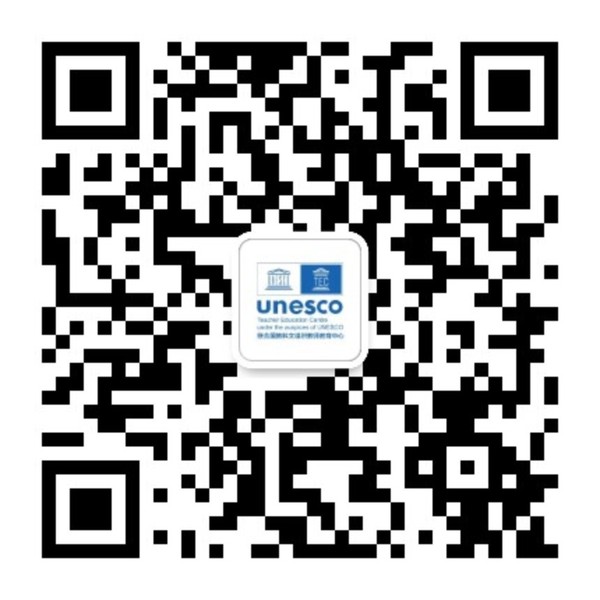On the morning of April 18, 2025, the closing ceremony of the 3rd Hong Kong STEAM Education Leaders Exchange and Training Program was successfully held at the UNESCO Teacher Education Centre (TEC). Attendees included Mr. Zheng Songqi, Senior Curriculum Development Officer (Science) of the Education Bureau of the People’s Republic of China, Hong Kong; Mr. Cheung Tsz-wai, Senior Curriculum Development Officer (Primary School-based Curriculum Development); Mr. Chan Ka-lok, Curriculum Development Officer (Mathematics); Professor Zhang Minxuan, Director of TEC; Professor Hu Guoyong, Deputy Director of TEC; and 32 primary and secondary school principals and teachers from Hong Kong. The ceremony was chaired by Professor Hu Guoyong.
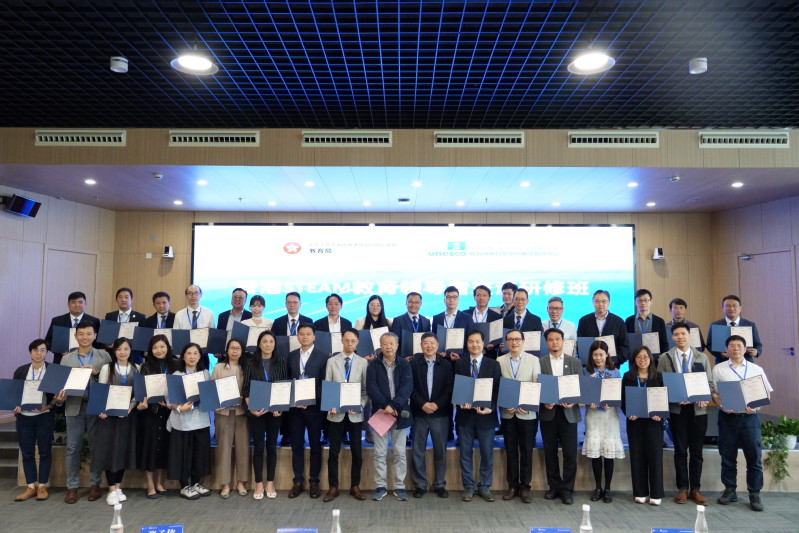
At the ceremony, participants first watched a project summary video, reviewing the wonderful moments of the program. Mr. Zheng Songqi then delivered a speech. He looked back on the week-long learning journey, expressed sincere gratitude to the participating principals and teachers, and emphasized that the knowledge and experience gained from this program are not only nourishment for personal growth but also a cornerstone for driving educational innovation. Mr. Zheng particularly thanked TEC for its meticulous preparations and the hard work of its staff, and urged the participants that educational innovation must be driven by action. He hoped that in the future, they would continue to explore localized paths for STEAM education, support students’ all-round development, and cultivate future innovative talents for Hong Kong and the country.
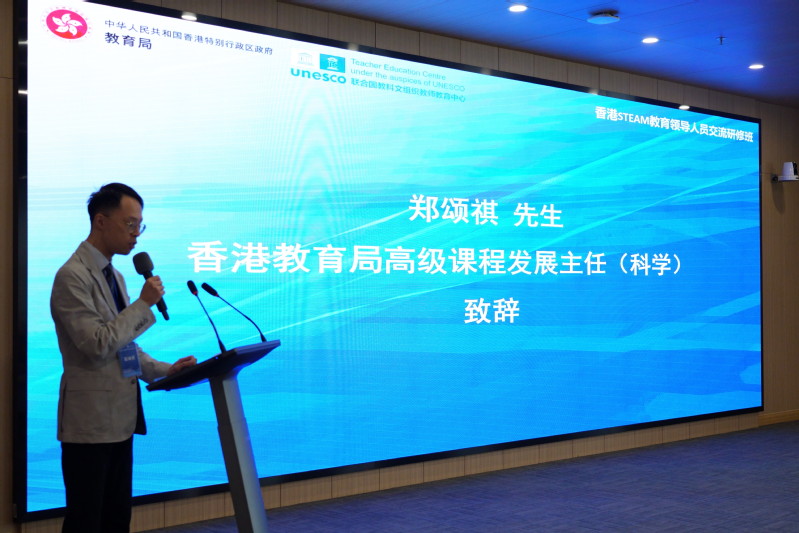
After the speech session, participants took turns to step forward to receive their certificates of completion, and together they took a precious group photo amid warm applause, bringing the successful program to a perfect conclusion.
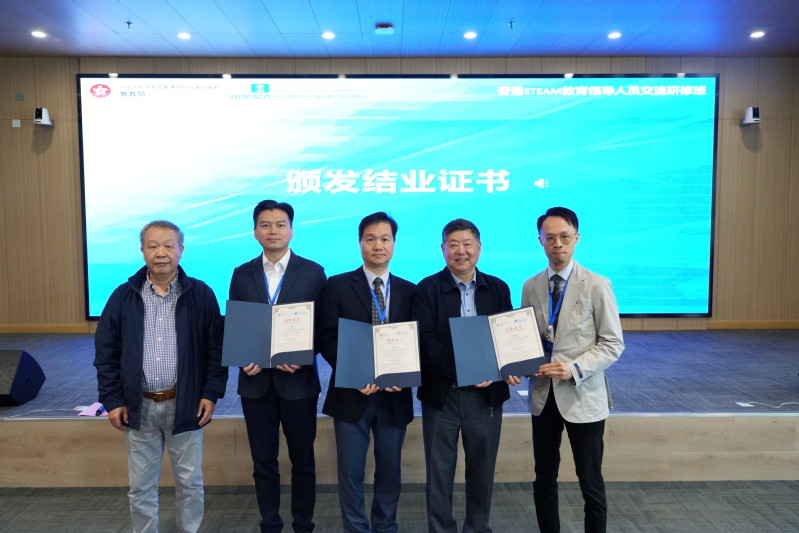
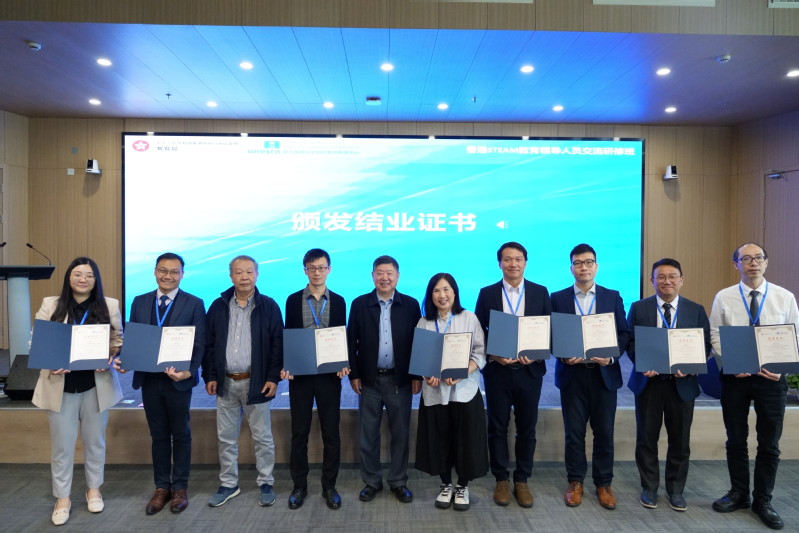
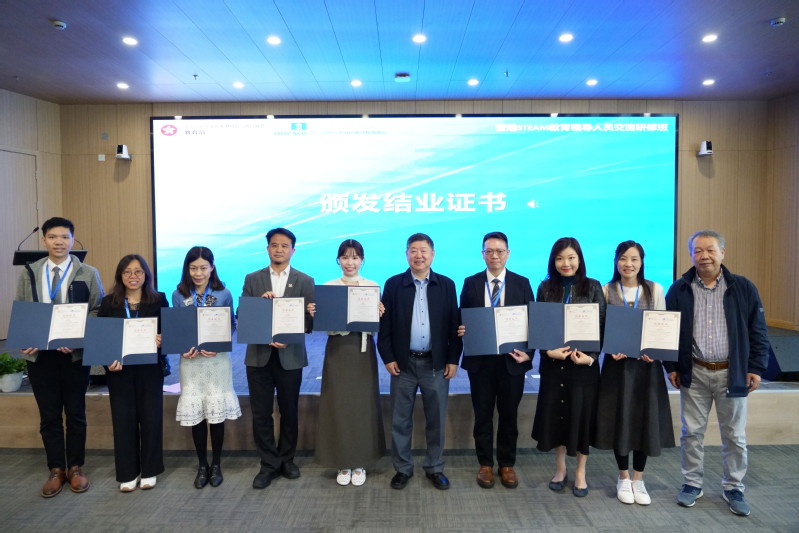
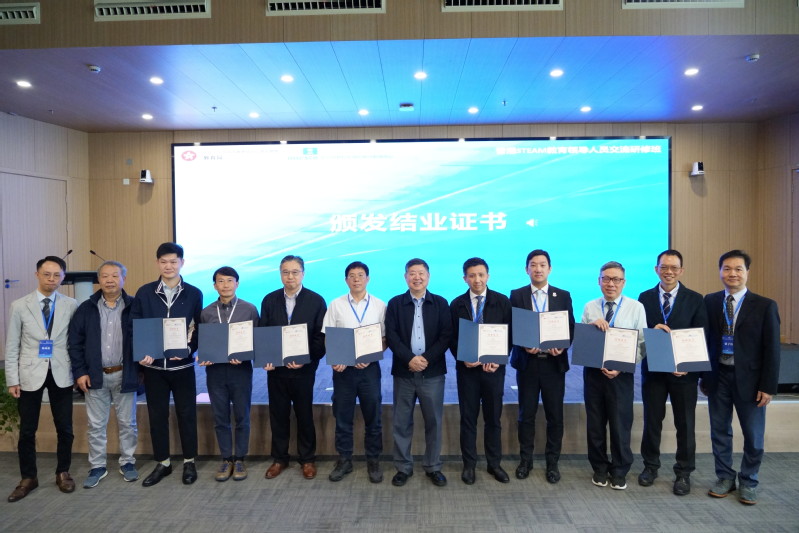
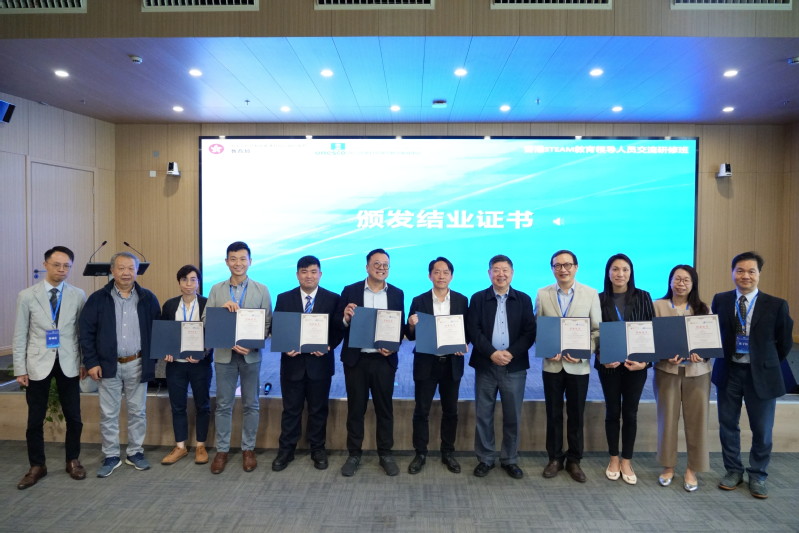
On the same morning, Professor Zhang Minxuan, Director of TEC, delivered a lecture themed Shanghai's STEAM Education from the Perspective of PISA. He reviewed Shanghai’s participation in PISA tests, and combined with Shanghai’s performance in mathematics and science in PISA, delved into the core value and practical paths of STEAM education. Professor Zhang suggested that cities and various institutions could strongly support STEAM education through measures such as adding interdisciplinary courses, upgrading laboratories with new technologies, and promoting teacher professional development.
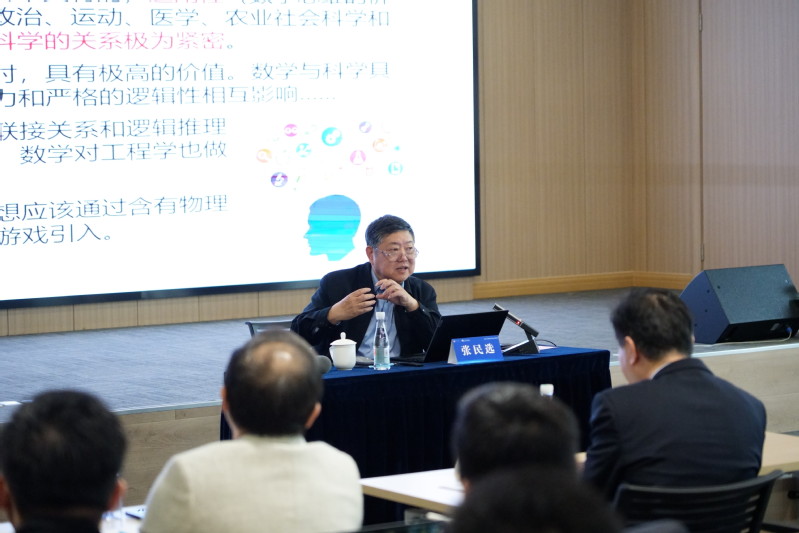
Compared with the first two sessions, this program included visits to 5 new institutions. At the Shanghai Research Centre for Digital Experiment Systems in Primary and Secondary Schools, participants listened to introductions by Dr. Li Ding, Deputy Director, and other teachers from the centre, learning about the development of digital experimental teaching in Shanghai’s primary and secondary schools and the achievements of digital experiments in subjects such as physics, chemistry, biology, and geography. The Shanghai and Hong Kong sides discussed how to use digital experimental equipment to visually present various hard-to-observe or express data, and how to stimulate students’ interest in scientific exploration.
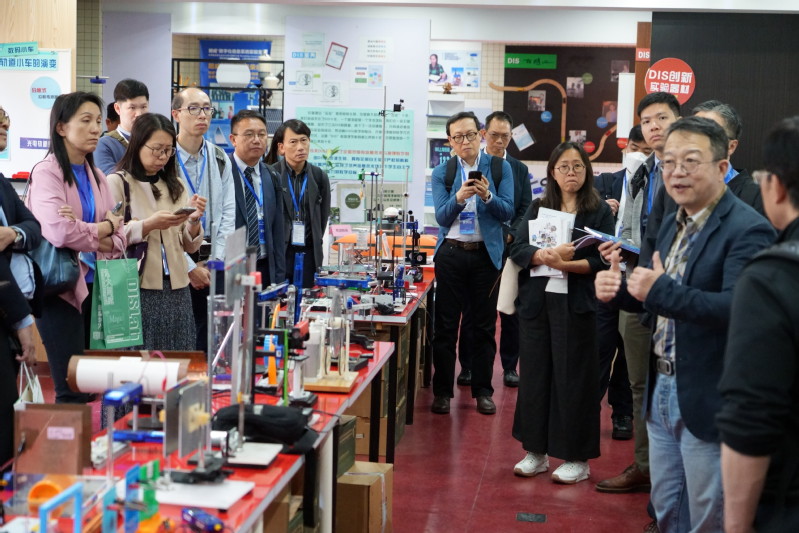
At Fenghua Middle School, participants heard Principal Zhu Yu introduce the school’s science education. Adhering to the philosophy of Integrating Principles, Educating through Principles, Fenghua Middle School has established a Science and Technology Innovation Centre, integrated science and technology education into its regular teaching system, developed school-based science and technology courses, and regularly held science and technology innovation activities. Participants then split into five groups to observe STEAM classes on themes such as drones and 3D printing. Each class incorporated interdisciplinary elements and provided students with hands-on operation time and experience. After the classes, hosted by Ms. Luo Xin, Director of the School Office of Fenghua Middle School, the two sides exchanged views on the design, implementation, and evaluation of STEAM courses.
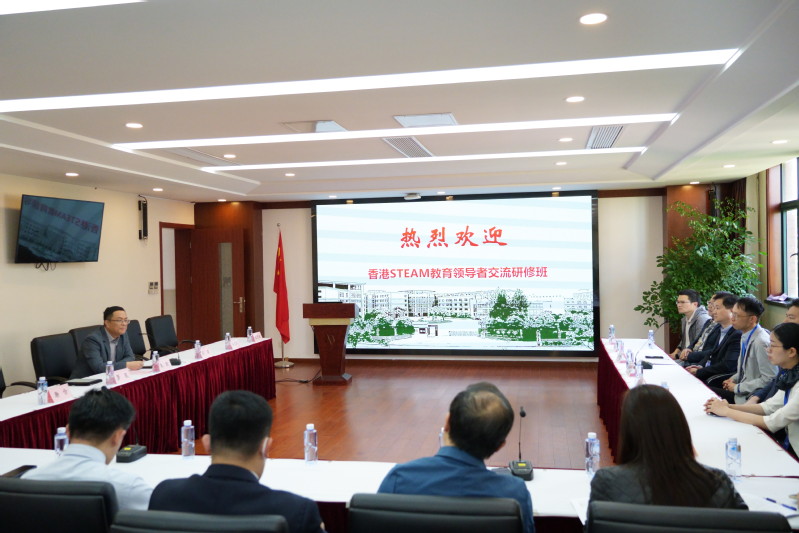
At Shanghai Changning Experimental Primary School, Vice Principal He Xing and teachers from the science group detailed the school’s distinctive HAO community-based school curriculum cluster, project-based science activities, subject practice theme projects, and campus science and technology festivals. Two groups of students also showcased their science and technology innovation projects. Subsequently, Ms. Xue Wenfei and Ms. Yang Xin presented an interdisciplinary thematic learning class entitled Sponge City System – Rainwater Infiltration and Collection Module. Students showed great interest in the class and carried out various exploratory practices. The enthusiastic explanations and wonderful demonstrations were met with warm applause from the participants.
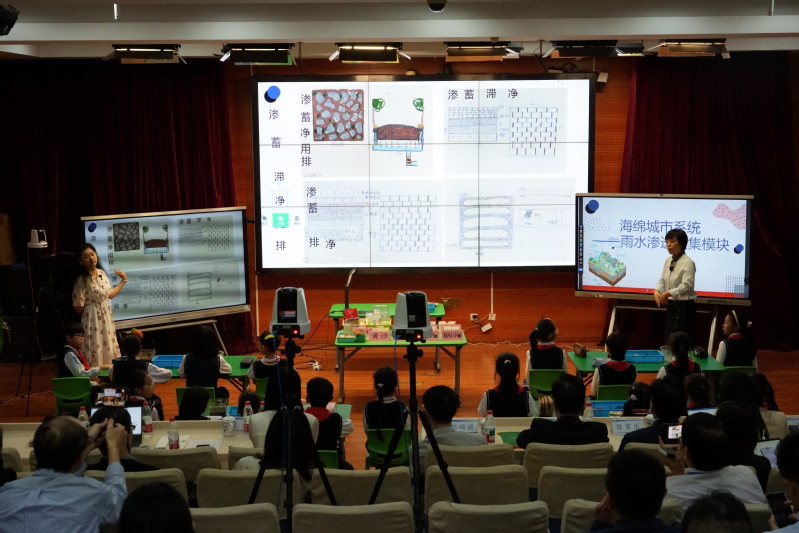
To learn about extracurricular STEAM activities for primary and secondary school students in Shanghai, participants also visited the Pudong New Area Youth Activity Centre. Led by Director Zhu Guohua and Deputy Director Wang Qinhua, they toured the Large Aircraft Science and Technology Experience Hall and the Insect Exploration Hall. In the discussion session, Ms. Lü Cuihong, Head of Foreign Affairs and Hong Kong, Macao, and Taiwan Affairs of the Pudong New Area Education Bureau and Director of the Pudong New Area Education International Exchange Centre; Mr. Li Huanyu, Party Secretary and Executive Vice Principal of High School Affiliated to East China Normal University (Qiantan Campus); and Mr. Yang Zheng, Vice Principal of Zhuyuan Primary School, introduced extracurricular and curricular STEAM education courses in Pudong New Area schools. The Shanghai and Hong Kong sides discussed the cultivation and enhancement of students’ creativity and self-confidence, as well as the arrangement of teaching time for STEAM courses.
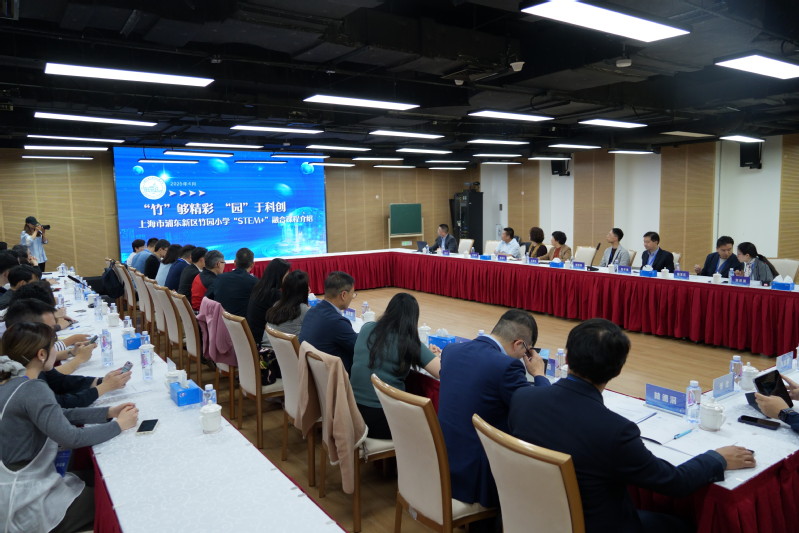
In the implementation of STEAM courses, urban science popularization venues also play an important role. At the Pudong Urban Planning and Public Art Centre, participants experienced the application of interdisciplinary integration of architecture, art, and digital technology in science popularization venues, and understood the profound connotation of expressing urban development through technology and art.
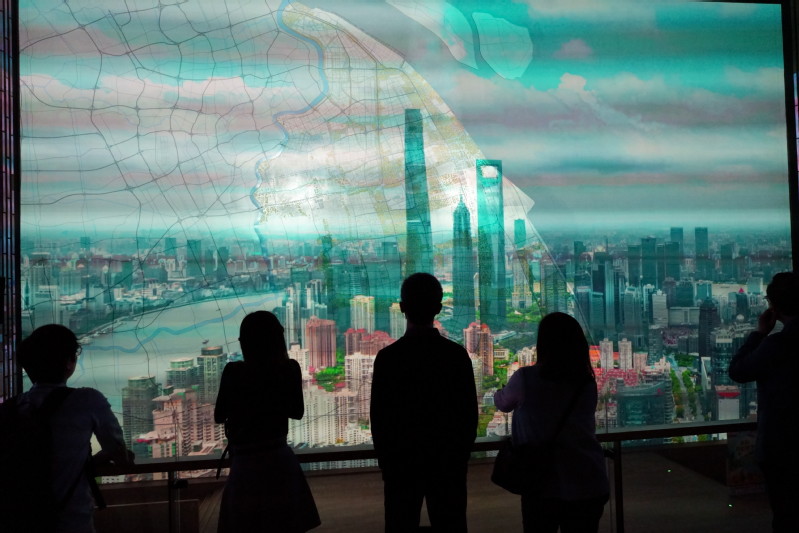
The successful holding of this program has further promoted the exchange and integration of wisdom between Shanghai and Hong Kong, and the two sides will jointly open a new chapter in the development of STEAM education.
(Contributions/Photos provided by: UNESCO Teacher Education Centre)




